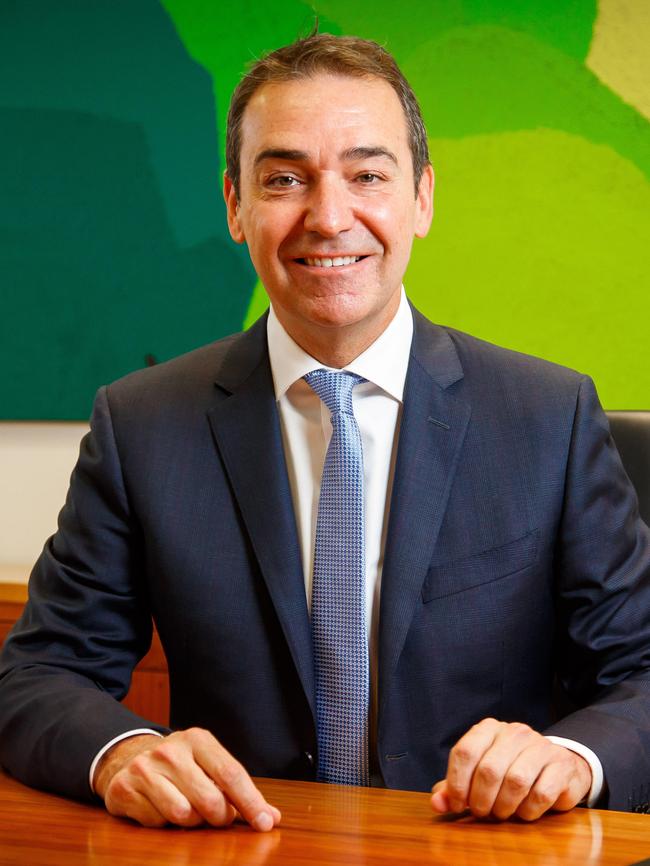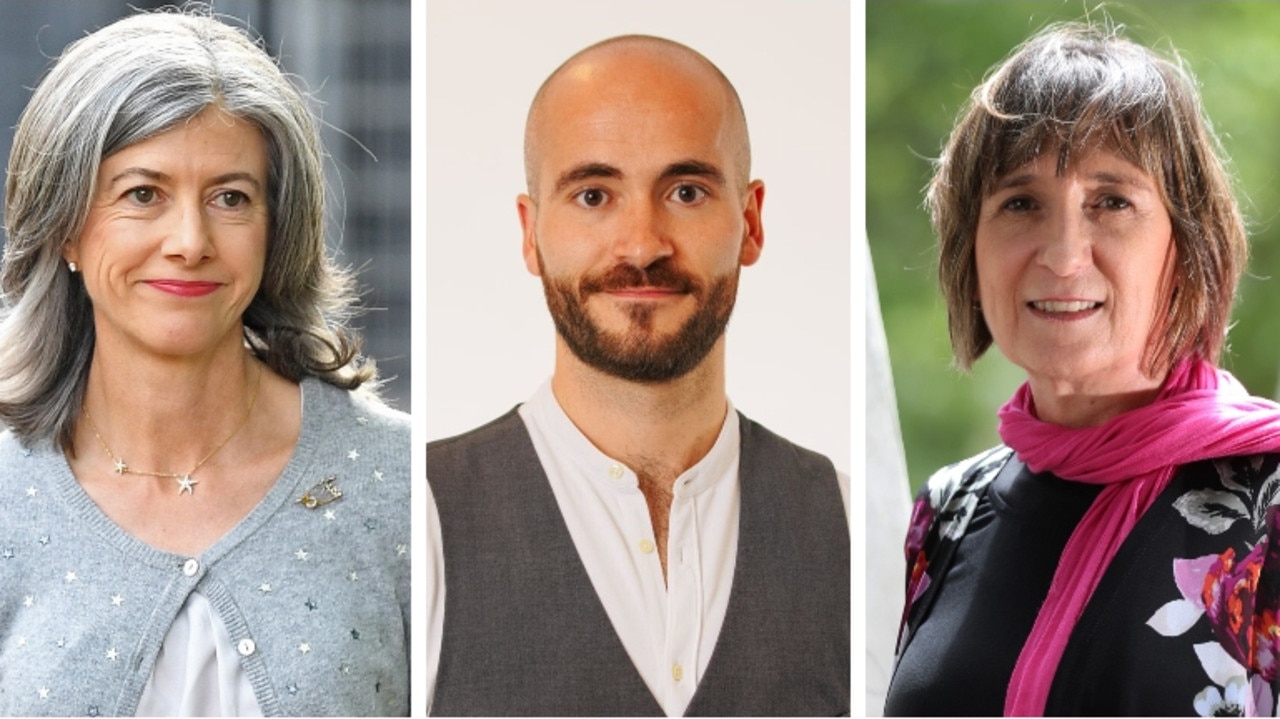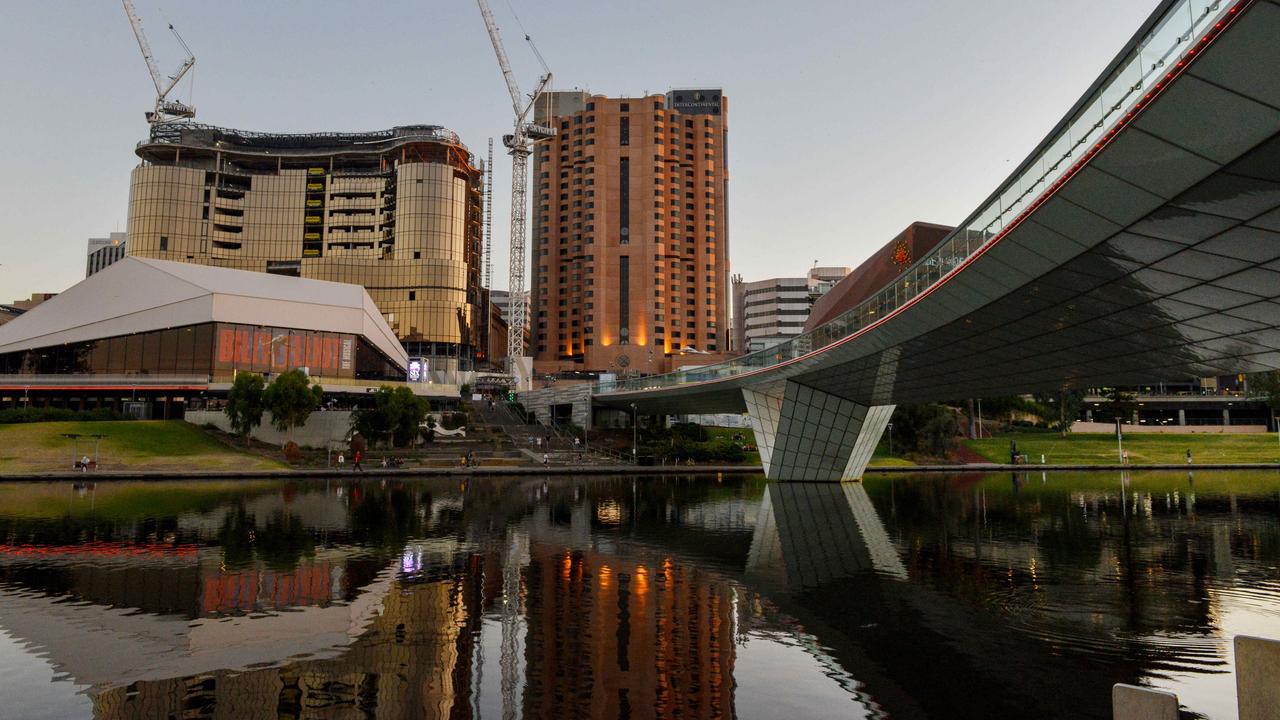Premier Steven Marshall says Future Adelaide must focus on innovation and less on social engineering in economic overhaul
MORE innovation, more technical training and a bigger population are keys to Adelaide’s economic overhaul, says Premier Steven Marshall, vowing “more civil engineers and less social engineers”.
Future Adelaide
Don't miss out on the headlines from Future Adelaide. Followed categories will be added to My News.
- LABOR LEADER: Teach our kids coding from the start
- THE MAYORS: Port’s ‘bursting’ schools need radical overhaul
- CITY GROWTH: Adelaide’s top 10 suburbs to live, work and play
- FUTURE ADELAIDE: Why our state must act now
BUILDING a bigger SA that embraces a new entrepreneurial mindset is key to unlocking full value from unprecedented opportunities before the state, Premier Steven Marshall says.
Promoting a dramatic break from the recent past, Mr Marshall has told The Advertiser his vision for Future Adelaide is a place with “more civil engineers and less social engineers”, as a revitalised private sector seized spin-off activities linked to a $90 billion defence spend.
He also urged the state to shed a mentality of seeking an economic “silver bullet” and said an agenda of structural reform was the sustainable path to greater future prosperity.

He flagged a bigger population, more technical training, new infrastructure and renewed focus on innovation as core government tasks in laying the foundation for renewed private activity.
“Fundamental to our ambition for this state is to be enabling individual citizens to determine their own ambition and set of goals, and not to have them imposed by a social engineering government,” Mr Marshall said.
“We want more civil engineers and less social engineers.
“Naturally people always want to have a silver bullet identified for them. But the reality is that the best governments are the ones which look to improve the lot of their citizens every single day.
“(Former New Zealand prime minister) John Key has been lauded as one of the best centre-right governments, certainly of the last 50 years, and his approach was ‘radical incrementalism’.
“Not a big bang, but looking to identify and implement best practice across a range of sectors. Most importantly, that means creating an environment where the private sector can flourish, because governments just can’t fund all growth.”
Mr Marshall said his role was to be a catalyst to help individuals and businesses make the most of emerging opportunities, especially in defence and space, with “sensible grown-up discussions” were under way with the Federal Government about boosting immigration.
“We will be wanting to see population growth in SA, and that’s not something that we should fear,” he said.
“It’s something that we should actually be positive about. There is a huge capacity for this state to take a higher population, especially across regional SA.”
INTERACTIVE MAP
If you are on a mobile device, tap here to see the map in full screen. Hit the Customise tab to explore the best suburbs for you based on your personal preferences.
Mr Marshall said a $187 million spend on technical training would ensure Adelaide did not lose defence work due to a lack of skills, and young people could aspire to decades of well-paid work in innovative industries that did not require them to seek university degrees.
“I don’t think any South Australian really understands yet just how incredibly large the (defence) requirement is for our state,” he said.
“We have been given this unprecedented opportunity. It will have a significant increase on the size of our economy.”
He said his Government was also preparing “the most compelling, competitive bid” to host Australia’s space agency, which would “not be based on handout but real capability”.
“I think we will find a proliferation of spin-offs,” Mr Marshall said.
“If we look to the horizon, there are so many sectors where nobody has really carved out market dominance.
“Space, small satellite technology, blockchain, artificial intelligence, drones and agricultural technology — these are areas where SA has got as much chance as anywhere else.”
Much of that, he said, could be created at a rejuvenated old Royal Adelaide Hospital site where the Government is setting up an innovation hub led by a chief entrepreneur.
Mr Marshall said his ambition in the long-term was for SA and Adelaide to win back lost pride and rebuild their standing as competitive and dynamic players in national life.
“We don’t want to be always being portrayed in the national press as one that is owed something by the rest of the Commonwealth,” he said.
“We want to stand on our own two feet. I think we can turn it around quite quickly.”


